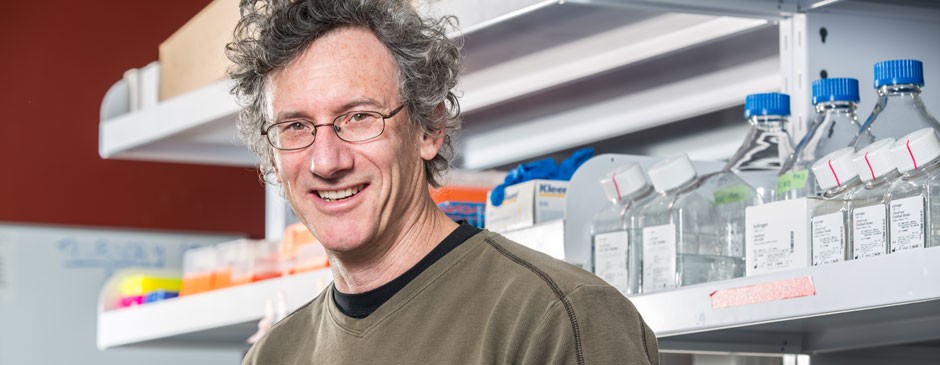Concordia’s new Genome Foundry means a faster pathway to understanding human beings

Having access to a facility like the Genome Foundry means a lot to biologists like Malcolm Whiteway.
As a professor of biology at Concordia, Canada Research Chair in Microbial Genomics, and a member of the Centre for Applied Synthetic Biology, Whiteway says the Foundry’s practical applications are opening up new pathways of research that had previously been closed off due to time and resource constraints.
Much of the work that gets done in molecular biology is fairly repetitive,” he says. “Being able to automate and generate high through-put capacity in that field allows students to spend more time thinking up important questions. Plus, robots are better at routine tasks. The Foundry is a tool that enhances our ability to do our work.”
Whiteway and his team spend much of their time studying Candida albicans, a medically important pathogenic yeast. He hopes to understand the organism well enough to be able to develop and improve existing treatments for Candida infections.
“It’s an organism that is so much like us that we need to understand it quite well to find the unique weaknesses we can target,” he says. “It’s a fascinating organism to study but ultimately we want to know its weaknesses in order to better treat infections.”
As a cutting-edge facility, the Genome Foundry provides a critical boost to Concordia researchers like Whiteway. He has seen firsthand how technology–and the expectations of what leading researchers are doing with it—has changed over the years.
“When I was a postdoc, sequencing a gene was a big deal, and could get you in a high-profile journal,” he says. “Now, you would have to sequence multiple genomes and generate an interesting result to get into one. The bar keeps getting higher and higher as our understanding of how life works keeps getting better and better.”
Beyond the practical purposes, Whiteway says the foundry will also allow us to understand human beings as a whole much better – who we are and where we came from. Scientists have already sequenced genomes of ancient dogs and horses that are hundreds of thousands of years old, and upended our assumptions in the process.
“The field of genomics is clearly going to be an amazingly exciting field over the next few decades,” he says. “The ability to sequence genomes quickly and cheaply gives us access to huge amounts of information that allow us to understand where we as a species came from and give us access to biologically clever strategies that organisms have used to answer questions that we haven’t even thought to ask yet.”